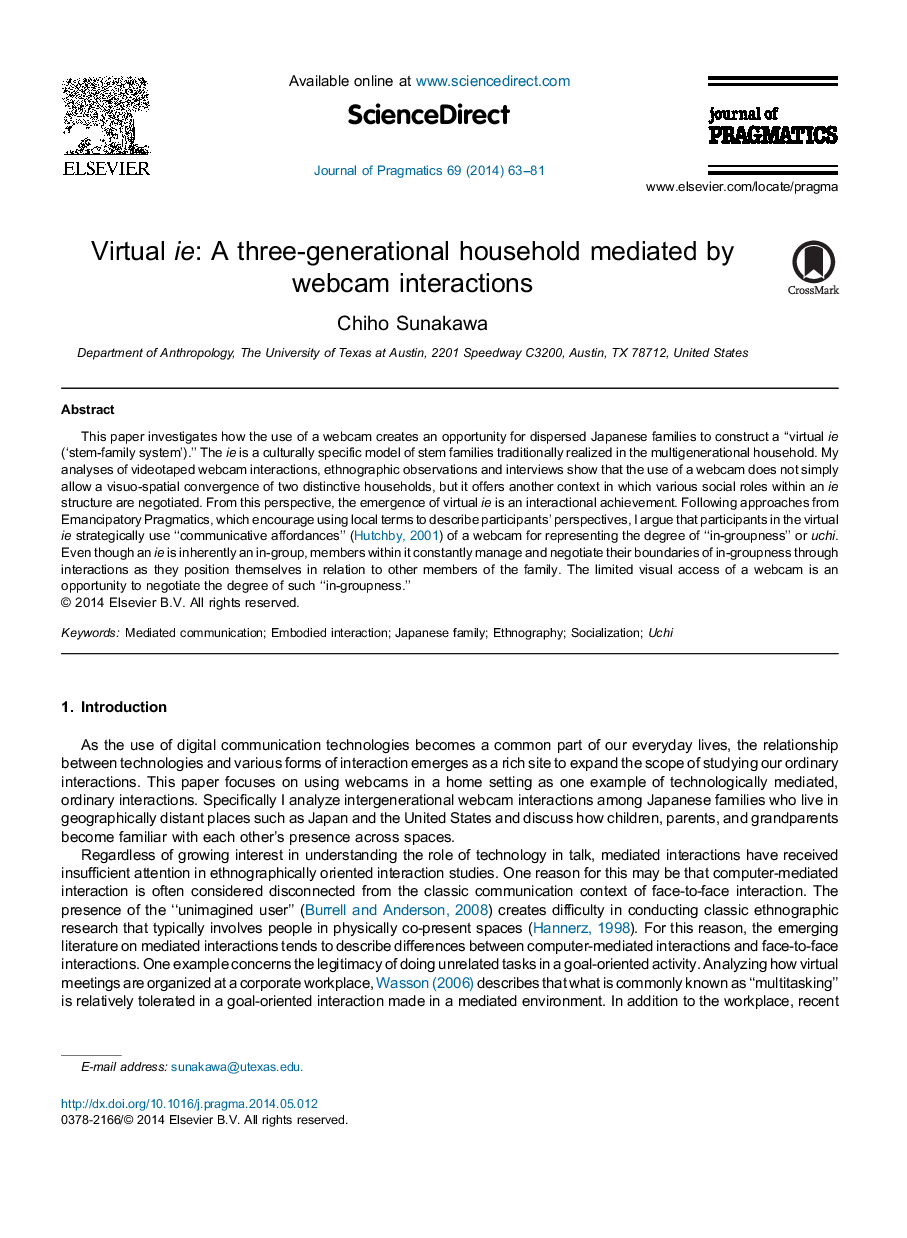| Article ID | Journal | Published Year | Pages | File Type |
|---|---|---|---|---|
| 932717 | Journal of Pragmatics | 2014 | 19 Pages |
This paper investigates how the use of a webcam creates an opportunity for dispersed Japanese families to construct a “virtual ie (‘stem-family system’).” The ie is a culturally specific model of stem families traditionally realized in the multigenerational household. My analyses of videotaped webcam interactions, ethnographic observations and interviews show that the use of a webcam does not simply allow a visuo-spatial convergence of two distinctive households, but it offers another context in which various social roles within an ie structure are negotiated. From this perspective, the emergence of virtual ie is an interactional achievement. Following approaches from Emancipatory Pragmatics, which encourage using local terms to describe participants’ perspectives, I argue that participants in the virtual ie strategically use “communicative affordances” ( Hutchby, 2001) of a webcam for representing the degree of “in-groupness” or uchi. Even though an ie is inherently an in-group, members within it constantly manage and negotiate their boundaries of in-groupness through interactions as they position themselves in relation to other members of the family. The limited visual access of a webcam is an opportunity to negotiate the degree of such “in-groupness.”
